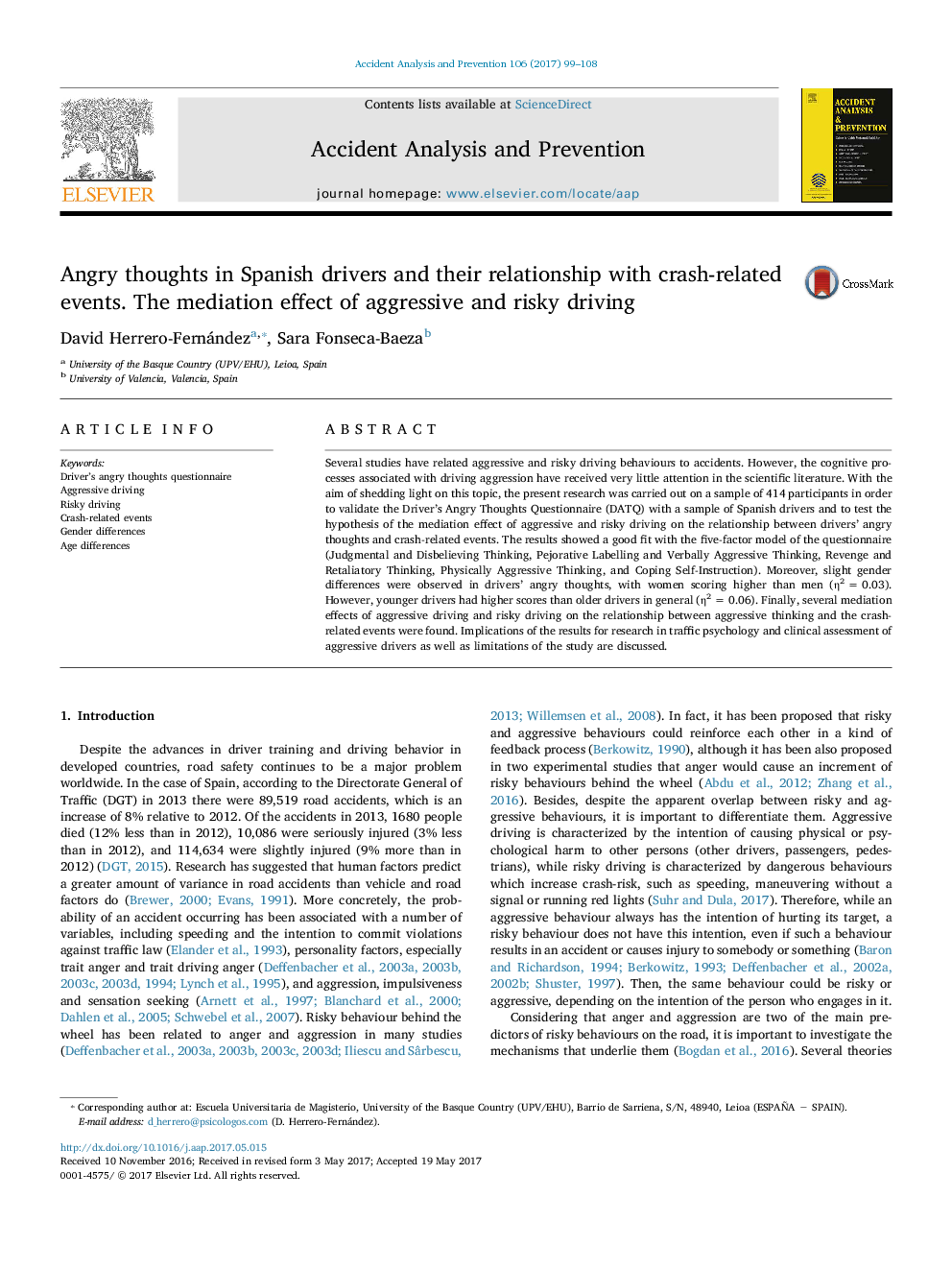ترجمه فارسی عنوان مقاله
افکار عصبانی در رانندگان اسپانیایی و ارتباط آنها با وقایع مرتبط با تصادف. اثر میانجی از رانندگی پرخاشگر و مخاطره آمیز
عنوان انگلیسی
Angry thoughts in Spanish drivers and their relationship with crash-related events. The mediation effect of aggressive and risky driving
| کد مقاله | سال انتشار | تعداد صفحات مقاله انگلیسی |
|---|---|---|
| 131840 | 2017 | 10 صفحه PDF |
منبع

Publisher : Elsevier - Science Direct (الزویر - ساینس دایرکت)
Journal : Accident Analysis & Prevention, Volume 106, September 2017, Pages 99-108
ترجمه کلمات کلیدی
پرسشنامه افکار عصبی راننده، رانندگی تهاجمی، رانندگی خطرناک، وقایع مرتبط با تصادف، تفاوت های جنسیتی، اختلاف سن،
کلمات کلیدی انگلیسی
Driverâs angry thoughts questionnaire; Aggressive driving; Risky driving; Crash-related events; Gender differences; Age differences;

